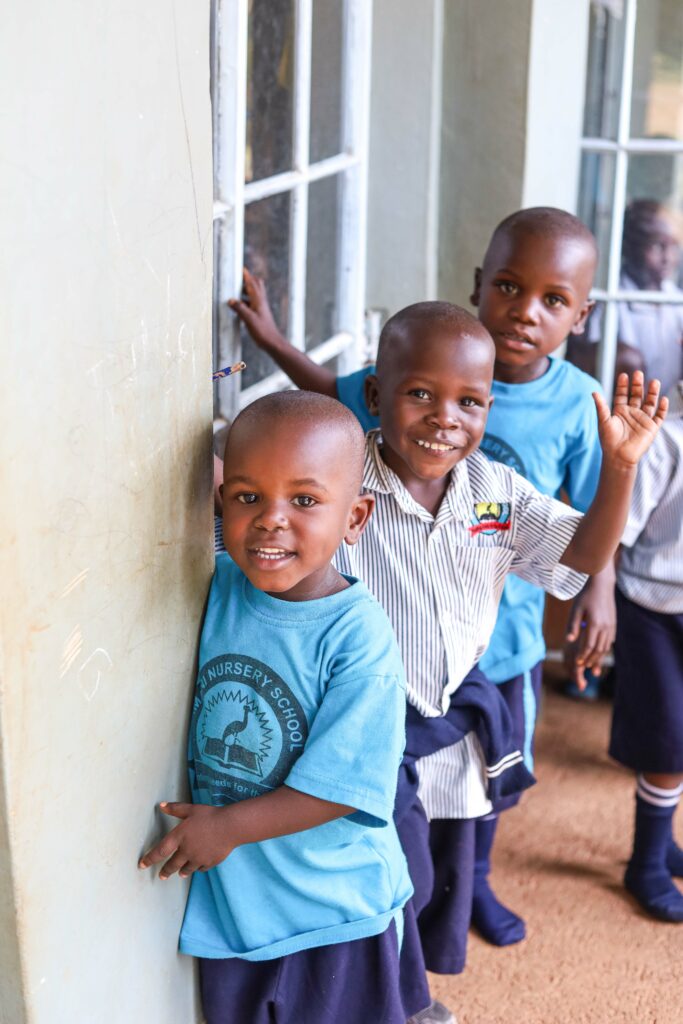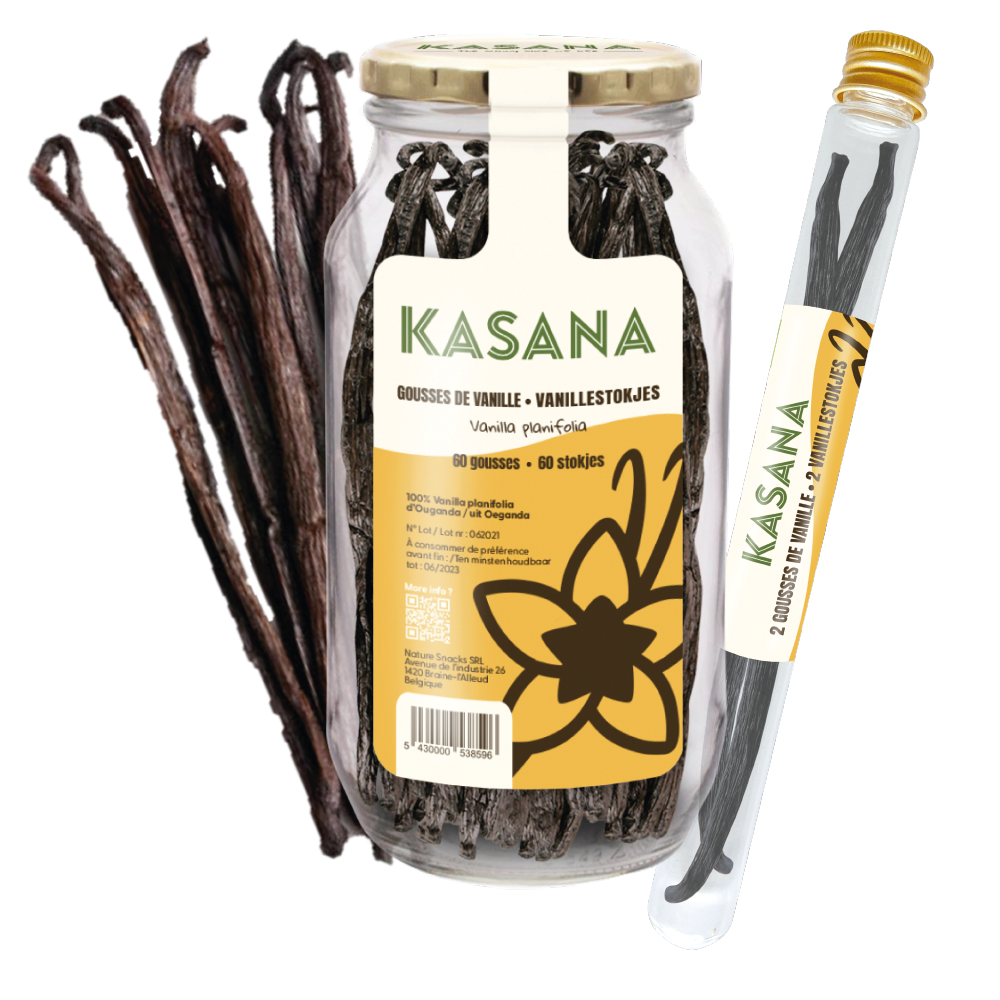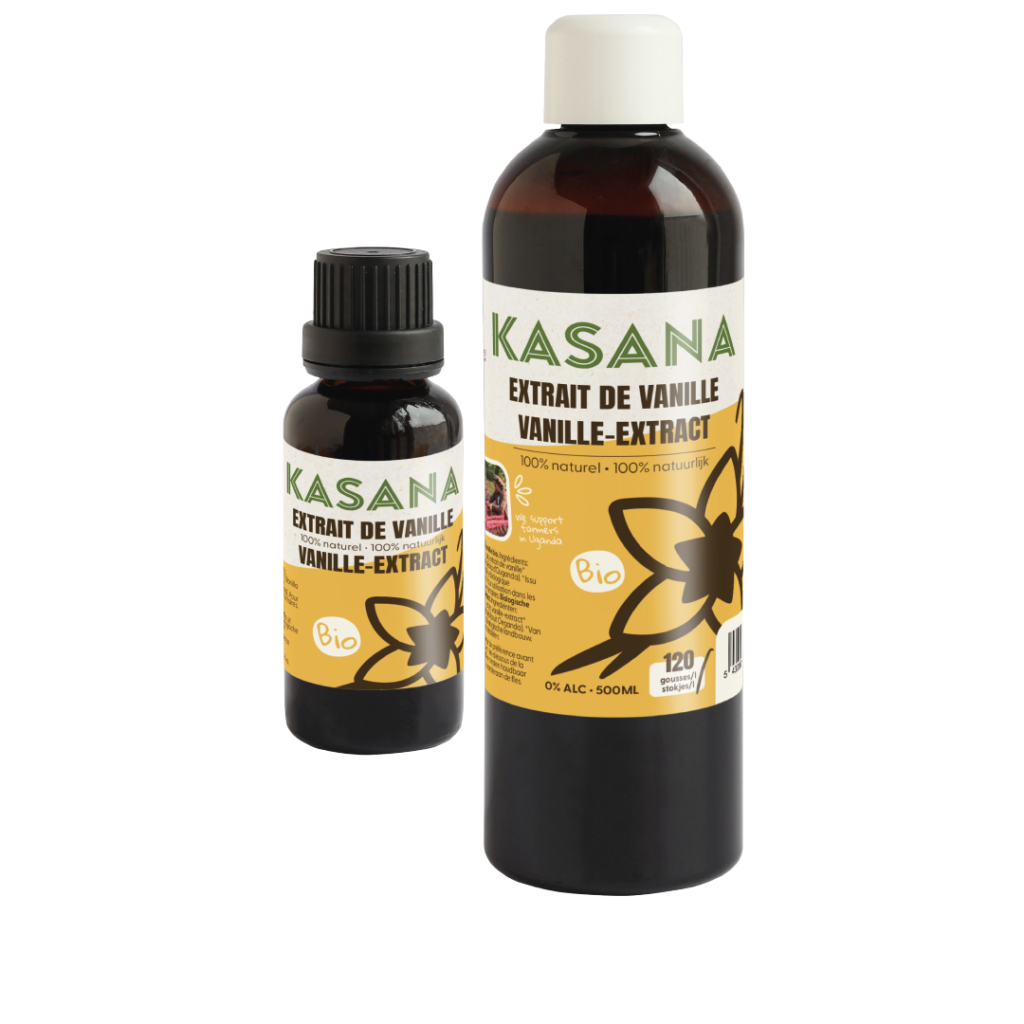Our vanilla project in Uganda
In Uganda, growing vanilla is a slow and careful process. Every step is done by hand, from pollinating the flowers to drying the beans. In the Kayunga region, hundreds of small farmers rely on this traditional work, supported by our direct partnerships and by local processing that creates jobs within the community. Discover how a delicate orchid becomes a rich, fragrant vanilla bean.
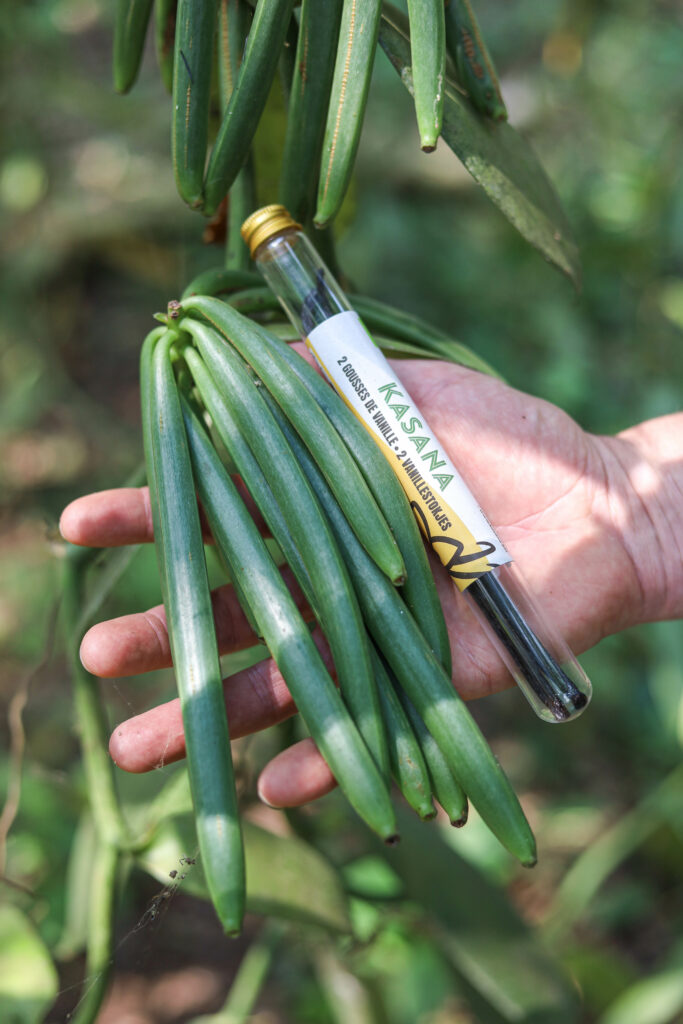
FROM FLOWER TO BEAN
Did you know that vanilla comes from an orchid? It is the flowers of this orchid that, once pollinated, produce the precious beans.
Only one species of bee, found exclusively in Mexico, can naturally pollinate vanilla flowers. In other countries, pollination must be performed manually, flower by flower, using a small needle.
About 8 months after pollination, the flowers transform into beautiful green beans, ready to be harvested. The harvest period lasts about 3 months, with 2 seasons per year (summer and winter).
VANILLA PRODUCERS
KASANA collaborates with approximately 300 producers in the Kayunga region of Uganda.
Our commitments to producers
By working directly with producers, we ensure they receive the support, fair compensation, and dignified working conditions they deserve.
- Producers benefit from the guidance of a team of agronomists who assist them in improving their farming practices.
- Producers also have access to financial loans, a resource that is often difficult to obtain in Uganda.
- The vanilla market is highly volatile, with significant and unpredictable price fluctuations that can pose challenges for producers. KASANA ensures fair and stable compensation for producers, even during periods of low market prices.
- Harvest quantities are set in advance, allowing producers to plan long-term and know their compensation ahead of time.
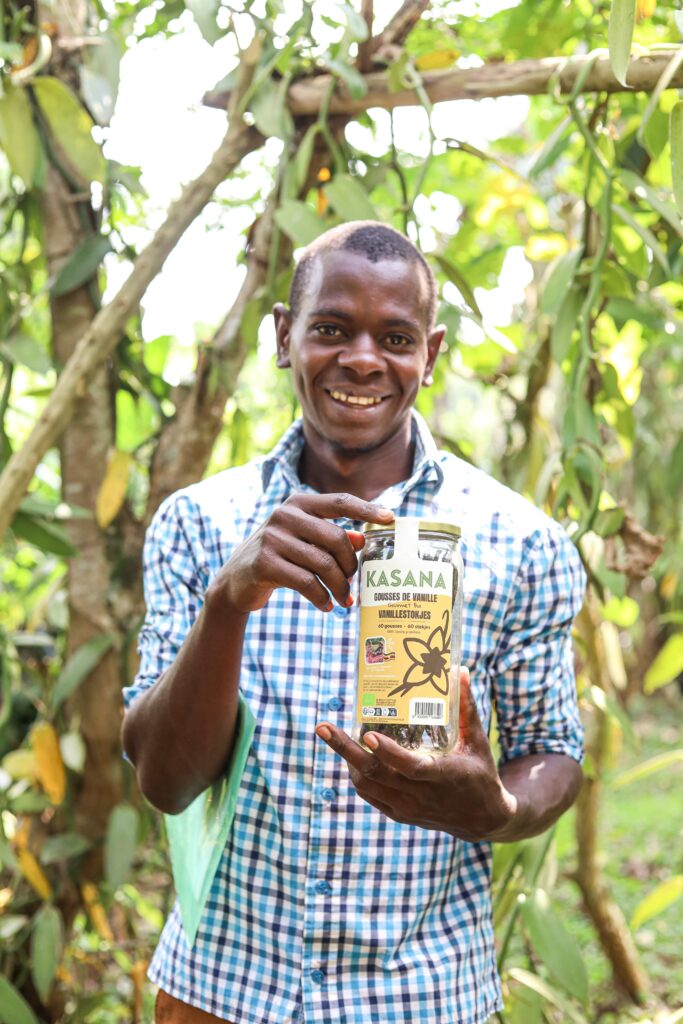
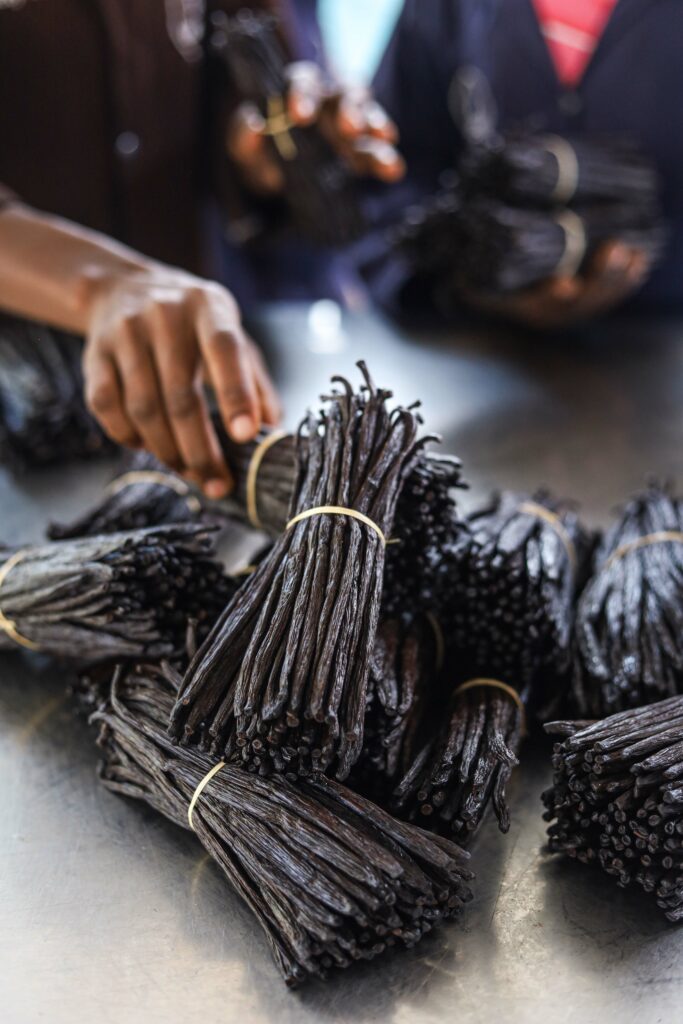
VANILLA BEAN PROCESSING
Before transforming into the familiar black, fragrant vanilla sticks we all know, vanilla beans undergo a series of steps to unlock their rich flavor: sorting, rinsing, drying, curing, etc.
Each of these processing stages takes place in Uganda and creates numerous job opportunities in a remote rural area.
Once the beans are ready for consumption, they are transported to our facilities by boat to minimize our environmental footprint.
THE AMANI NURSERY SCHOOL
KASANA supports local communities by funding the Amani Nursery School, which accommodates around 120 children aged 3 to 6 years. They learn to read, write, sing, and dance, and enjoy a snack and a daily meal.
The nursery serves both local village children and the children of workers from the processing center. It provides significant advantages for workers, especially women who often raise their children alone. With their children well cared for and safe at school, these women are able to work as they no longer need to find alternative childcare.
KASANA covers the school’s operational expenses, including utilities, teachers’ salaries, and meals. We also collaborate with partners who share our values to invest in projects that enhance the children’s daily lives. There’s still much to achieve, please feel free to contact us if you’d like to join us in this rewarding journey!
